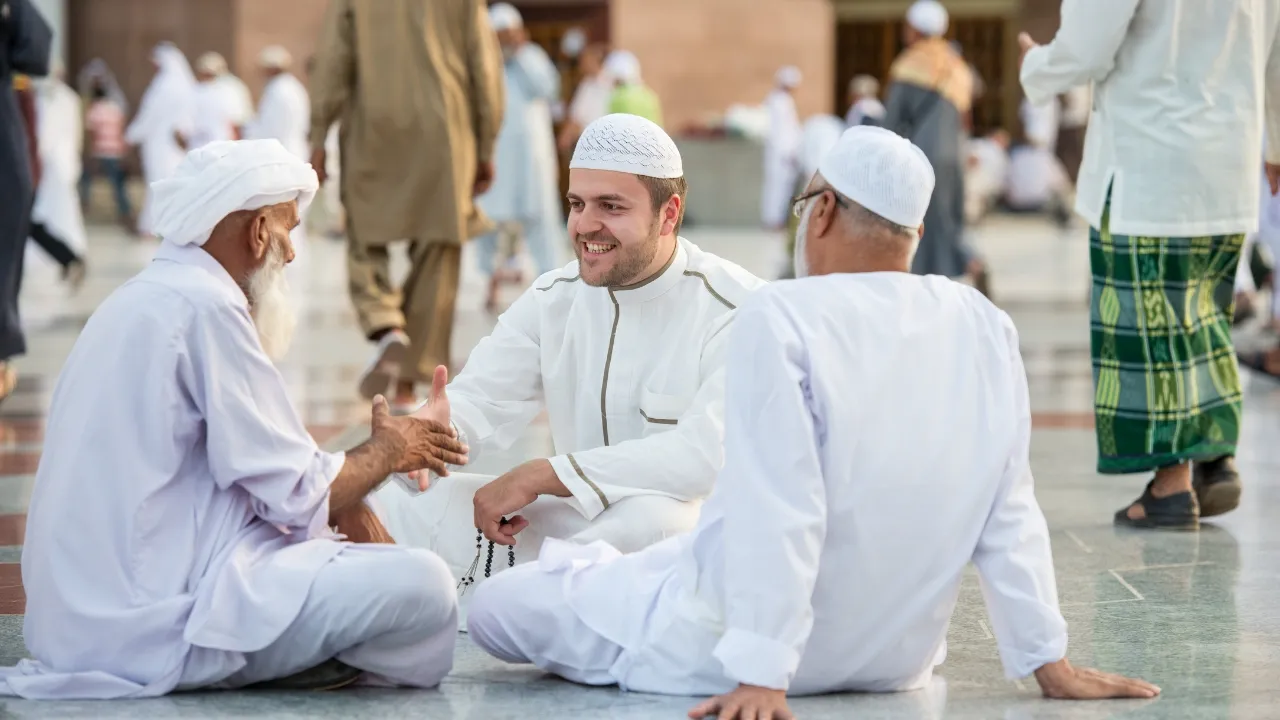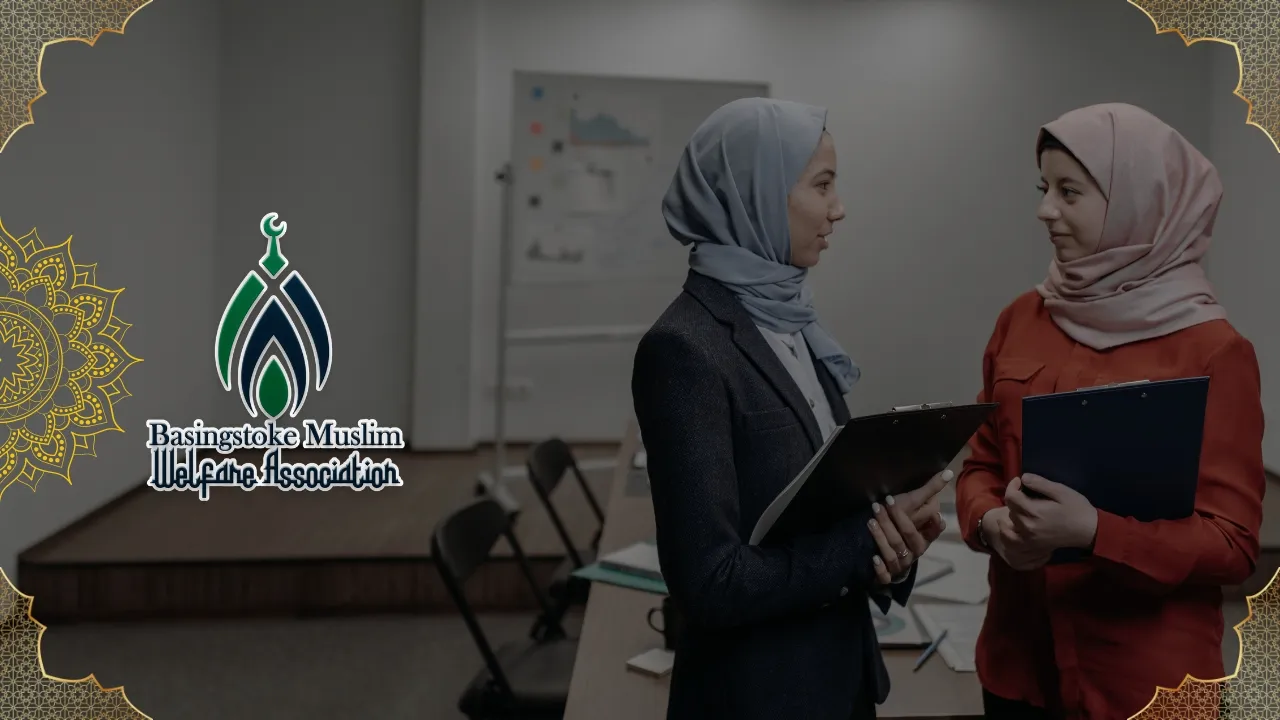Interfaith dialogue is a powerful tool for fostering understanding and respect among diverse religious communities. For the Basingstoke Muslim Welfare Association, engaging in interfaith dialogue is essential for building bridges of trust, breaking down barriers of prejudice, and promoting a harmonious society. In this comprehensive article, we will explore the significance of interfaith dialogue, its benefits, and practical strategies for fostering meaningful conversations and relationships between different faith communities.
The Importance of Interfaith Dialogue
Interfaith dialogue involves open and respectful conversations between individuals and groups from different religious traditions. Its primary goal is to promote mutual understanding, respect, and cooperation while acknowledging and appreciating the unique beliefs and practices of each faith.
In today’s globalized world, where religious diversity is more visible than ever, interfaith dialogue plays a crucial role in addressing misunderstandings, reducing tensions, and preventing conflicts. It allows individuals to learn about each other’s faiths, dispel myths and stereotypes, and find common ground on issues of shared concern.
For the Basingstoke Muslim community, engaging in interfaith dialogue is an opportunity to share the values and teachings of Islam, while also learning from the experiences and wisdom of other faith traditions. It is a chance to demonstrate the principles of compassion, justice, and coexistence that are central to Islamic teachings.
Benefits of Interfaith Dialogue

- Promoting Mutual Understanding: Interfaith dialogue helps individuals understand the beliefs, values, and practices of different faiths. This understanding can lead to greater empathy and respect for people of other religious backgrounds, reducing prejudice and promoting social harmony.
- Building Relationships and Trust: By engaging in open and honest conversations, individuals from different faith communities can build personal relationships and establish trust. These relationships can serve as a foundation for collaboration on common goals and initiatives.
- Addressing Common Challenges: Many challenges, such as poverty, injustice, and environmental degradation, are shared across faith communities. Interfaith dialogue provides a platform for collaborative action, allowing communities to work together to address these issues more effectively.
- Enriching Personal Faith: Engaging with individuals from different faith traditions can deepen one’s own spiritual understanding and practice. It provides an opportunity to reflect on one’s beliefs and values and to appreciate the diversity of religious expressions.
- Promoting Peace and Reconciliation: In contexts where religious tensions exist, interfaith dialogue can serve as a tool for conflict resolution and reconciliation. It fosters a spirit of peace and coexistence, helping to prevent and resolve conflicts rooted in religious differences.
Practical Strategies for Fostering Interfaith Dialogue

- Organizing Interfaith Events:
- Panel Discussions: Organize panel discussions on topics of mutual interest, featuring representatives from different faith communities. These events can provide a platform for sharing perspectives and fostering dialogue.
- Cultural Celebrations: Host cultural and religious celebrations that showcase the traditions and practices of various faith communities. These events can promote mutual appreciation and understanding.
- Creating Safe Spaces for Dialogue:
- Dialogue Circles: Establish dialogue circles where individuals can engage in open and respectful conversations about their faiths. Ensure that these spaces are inclusive and welcoming to all participants.
- Workshops and Seminars: Offer workshops and seminars on interfaith dialogue, providing participants with the skills and knowledge needed to engage in meaningful conversations.
- Collaborating on Community Projects:
- Social Initiatives: Partner with other faith communities on social initiatives, such as food drives, environmental projects, and support for the homeless. Working together on common goals can strengthen relationships and build trust.
- Advocacy Efforts: Collaborate on advocacy efforts related to social justice, human rights, and other issues of shared concern. Presenting a united front on these issues can amplify the impact of your efforts.
- Educational Programs:
- Interfaith Curriculum: Develop educational programs that include interfaith components, teaching students about the beliefs and practices of different religions. This can foster respect and understanding from a young age.
- Guest Speakers: Invite guest speakers from various faith traditions to share their perspectives and experiences with your community. This can provide valuable insights and promote dialogue.
- Leveraging Technology and Media:
- Online Platforms: Use online platforms and social media to facilitate interfaith dialogue and share resources. Create forums, webinars, and discussion groups that bring together individuals from different faith backgrounds.
- Multimedia Resources: Produce and share multimedia resources, such as videos, podcasts, and articles, that highlight interfaith dialogue and promote understanding.
Celebrating Diversity: Embracing the Beauty of Pluralism

Celebrating religious diversity is an integral part of fostering interfaith dialogue. Embracing pluralism involves recognizing and valuing the rich tapestry of beliefs and practices that exist within our community and beyond.
- Interfaith Festivals:
- Community Gatherings: Organize interfaith festivals that bring together people from different religious backgrounds to celebrate their traditions. These gatherings can feature music, dance, food, and cultural displays, promoting mutual appreciation and joy.
- Holiday Celebrations: Acknowledge and celebrate the religious holidays of various faith communities. This can include hosting events, sharing greetings, and learning about the significance of these occasions.
- Art and Culture:
- Art Exhibitions: Host art exhibitions that showcase religious art and artifacts from different faith traditions. Art can serve as a powerful medium for expressing and understanding diverse spiritual experiences.
- Cultural Performances: Arrange cultural performances, such as theater, music, and dance, that reflect the traditions of various faith communities. These performances can provide a window into the spiritual and cultural richness of each tradition.
- Dialogue Through Literature:
- Book Clubs: Start interfaith book clubs that read and discuss literature from different religious traditions. This can provide a deeper understanding of each faith’s sacred texts, stories, and teachings.
- Storytelling Events: Organize storytelling events where individuals share personal stories and experiences related to their faith. Storytelling can create emotional connections and foster empathy.
Conclusion: Fostering Interfaith Dialogue in the Basingstoke Muslim Community
Interfaith dialogue is a vital endeavor for the Basingstoke Muslim Welfare Association, reflecting our commitment to promoting understanding, respect, and cooperation among diverse religious communities. By embracing interfaith dialogue, we can build bridges of trust, break down barriers of prejudice, and work together to address common challenges.
As community members of the Basingstoke Muslims, let us continue to engage in meaningful conversations with our neighbors of different faiths. Through dialogue, education, and collaboration, we can create a community where diversity is celebrated, and mutual respect and understanding flourish.
Together, we can build a future where all individuals, regardless of their religious background, are valued and respected. By fostering interfaith dialogue, we contribute to a more harmonious and inclusive society, reflecting the principles of compassion, justice, and coexistence that are at the heart of our Islamic faith.


